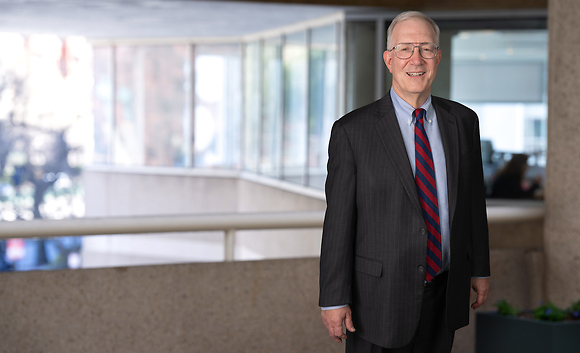Peter Barnes Comments on Sharia Law and Cross-Border Transactions in Islamic Finance News
At the 73rd annual conference of the International Fiscal Association (IFA), held in London in September 2019, Sharia compliant transactions were flagged up as a serious potential problem in terms of tax treatment. With approximately 6% of all global finance now applying Sharia principles (according to IFA data), almost all tax professionals will be touched by Sharia compliant issues in the coming years … and yet, warn experts, the industry is still woefully underprepared.
“I don’t think a lot of the taxpayers involved realize that they are operating in a world where there may be little or no guidance,” warned Peter Barnes, Of Counsel to Caplin & Drysdale in the U.S., a professor at Duke University, and for 22 years the senior international tax counsel for General Electric, the first U.S. corporate to issue Sukuk. “There is a lot of ignorance, and there are a lot of private transactions out there being undertaken by people who have not thought through how they’re going to report these transactions in their tax records.”
. . .
“Even though several entities have already conducted Sharia compliant transactions in the U.S., there is zero official guidance on how these transactions should be treated,” warned Barnes. “This is concerning, because there are U.S. taxpayers conducting these transactions, either directly or through their subsidiaries. Some subsidiaries are reporting transactions on their 5471 forms [which denote shareholdings in a foreign corporation] to some level, and I’m not sure the U.S. tax leaders of these companies even know these transactions are occurring, or have thought about the consequences of these transactions.”
This leads on to an even bigger concern around the cavalier treatment of cross- border transactions — which remain painfully vulnerable to scrutiny. “The number of jurisdictions with robust Islamic finance tax guidance is pitifully small,” said Barnes. “There are many situations where yes, a bank in Malaysia or Indonesia might be involved in the transaction — but other participants might be in the Philippines, or Korea, where the guidance is thin at best. Wherever a transaction is cross-border rather than domestic, there is an even higher likelihood of risk.”
. . .
“The biggest problem is that the bankers and the tax professionals don’t talk. And that’s a huge gap,” said Barnes. “You’ve got multinational banks with Sharia finance departments that are out there arranging these transactions, but the Sharia finance group within the bank is not keyed in — either to the clients’ tax professionals or in some cases even their own tax professionals. Lines of communication must be opened.”
. . .
“There is absolutely a place for global involvement,” agreed Barnes. “But while the OECD has its hands full with the digital tax debate, I’m not sure we will see any unified guidance anytime soon. For anyone involved in Sharia compliant transactions, especially cross-border, my advice would be to cover all bases as carefully as you can, in case they come back to bite you in the future.”
For the full article, please visit Islamic Finance News' website (subscription required).
Attorneys
- Of Counsel
